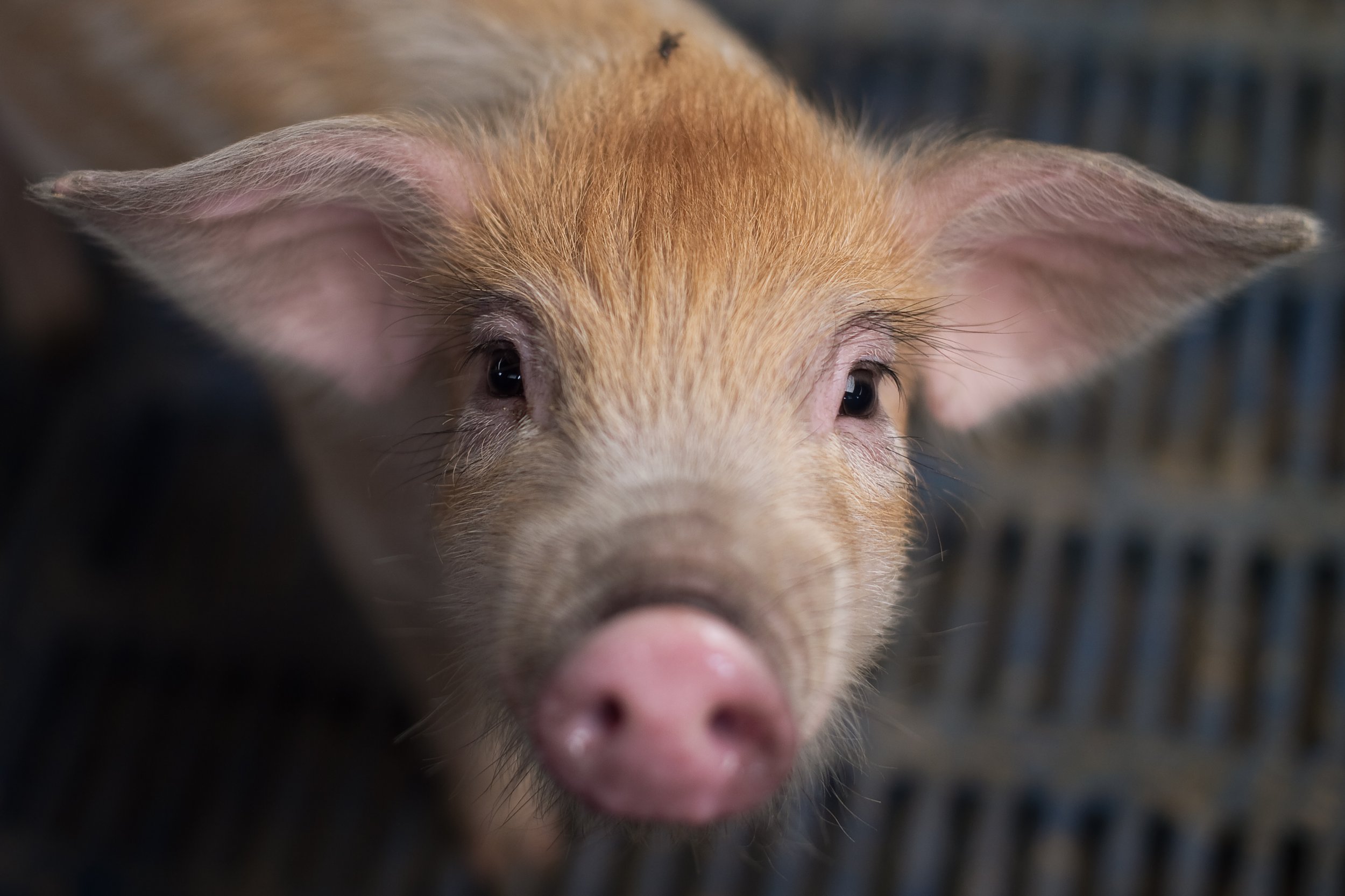
Bacon isn't typically in regular rotation for dieters or those concerned about heart health, unless it's of the limp, lower-fat turkey variety. But a new invention might change all that: skinny pigs.
NPR reports that scientists in China have used genetic engineering to make 12 pigs with 24-percent less body fat than their huskier counterparts. Published in the Proceedings of the National Academy of Sciences, the effort wasn't started because of health-conscious consumers in mind but rather by pig farmers hoping to save money. As the news outlet explains, keeping pigs warm in the winter is expensive, and the animals have a hard time regulating their internal temperatures. Thus, the interest in skinny pigs.
Related: Feeding marijuana to fish gives them the munchies but does not help them relax
The team knew that a protein found in fat, known as UCP1, helps regulate body temperature and burn fat. Pigs don't have this protein, so the team used the gene-editing process known as CRISPR-Cas9 to add what nature had not. The process makes it possible to alter DNA in an organism, and there's been talk about using it to treat diseases, make "designer babies," or in this case, skinny pigs. According to the researchers, these lighter breeds could have a huge impact on the industry.
"UCP1 KI pigs are a potentially valuable resource for agricultural production through their combination of cold adaptation, which improves pig welfare and reduces economic losses, with reduced fat deposition and increased lean meat production," the authors write in their study.

The new pigs are a testament to the capabilities of gene editing. "This is a paper that is technologically quite important," R. Michael Roberts, animal sciences professor at the University of Missouri, told NPR. He's not linked to the research but edited the paper. "It demonstrates a way that you can improve the welfare of animals at the same [time] as also improving the product from those animals—the meat."
But don't expect to bring home the diet-friendly bacon anytime soon. Genetically modified (GM) foods continue to be a contentious subject. Proponents believe that it could help feed millions of hungry people amid climate change and population growth. Others balk at the idea of eating science experiments.
The World Health Organization writes that the safety of GM foods depends on how the genes were tweaked, which will ultimately leave each item to be rated on a case-by-case basis. In the United States, the Food and Drug Administration has approved genetically engineered salmon. And apples not prone to browning are expected to be available soon.
Uncommon Knowledge
Newsweek is committed to challenging conventional wisdom and finding connections in the search for common ground.
Newsweek is committed to challenging conventional wisdom and finding connections in the search for common ground.
About the writer
Melissa is a science writer covering health for Newsweek and has contributed to Inc., Dr. Oz The Good Life, Men's Fitness, Marie Claire and others. She earned ... Read more
To read how Newsweek uses AI as a newsroom tool, Click here.






